Time for Some Truth: Breaking Down the Finale of ‘Big Little Lies’
The real friends were the lies we made along the way
The sound of waves crashing against jagged rocks is growing louder, the strumming and humming of Michael Kiwanuka’s “Cold Little Heart” more distinct—that’s right, Big Little Lies has returned! The star-studded miniseries is no longer a miniseries. So join us each week as we recap the latest in lies, backhanded compliments, and carpool crises. The journey continues with the Season 2 finale, “I Want to Know.”
Well. OK. So there was not a ton of plot, per se, this season, the last and almost certainly final chapter in a miniseries turned not so mini. But wasn’t Big Little Lies always about the atmosphere? No? Not convinced? Very well.
In the finale, we were served resolutions to both of the show’s major plotlines: Whether Celeste would fend off Mary Louise’s attempts to get custody of Max and Josh (yes), and whether the truth about Perry Wright’s death—and the Monterey Five’s involvement in it—would come out (seemingly also yes). (So much for Shailene Woodley’s supposed spoiler—there were no graves, empty or otherwise.)
And our leading ladies got happy endings: Jane and Corey made up (at Ziggy’s urging—gross?), as did Madeline and Ed—but not before Ed laid out the case for divorce, only to suggest that he and Madeline renew their vows instead. “What?” she asks. (Their vows were lovely and featured copious flower crowns, obvs.)
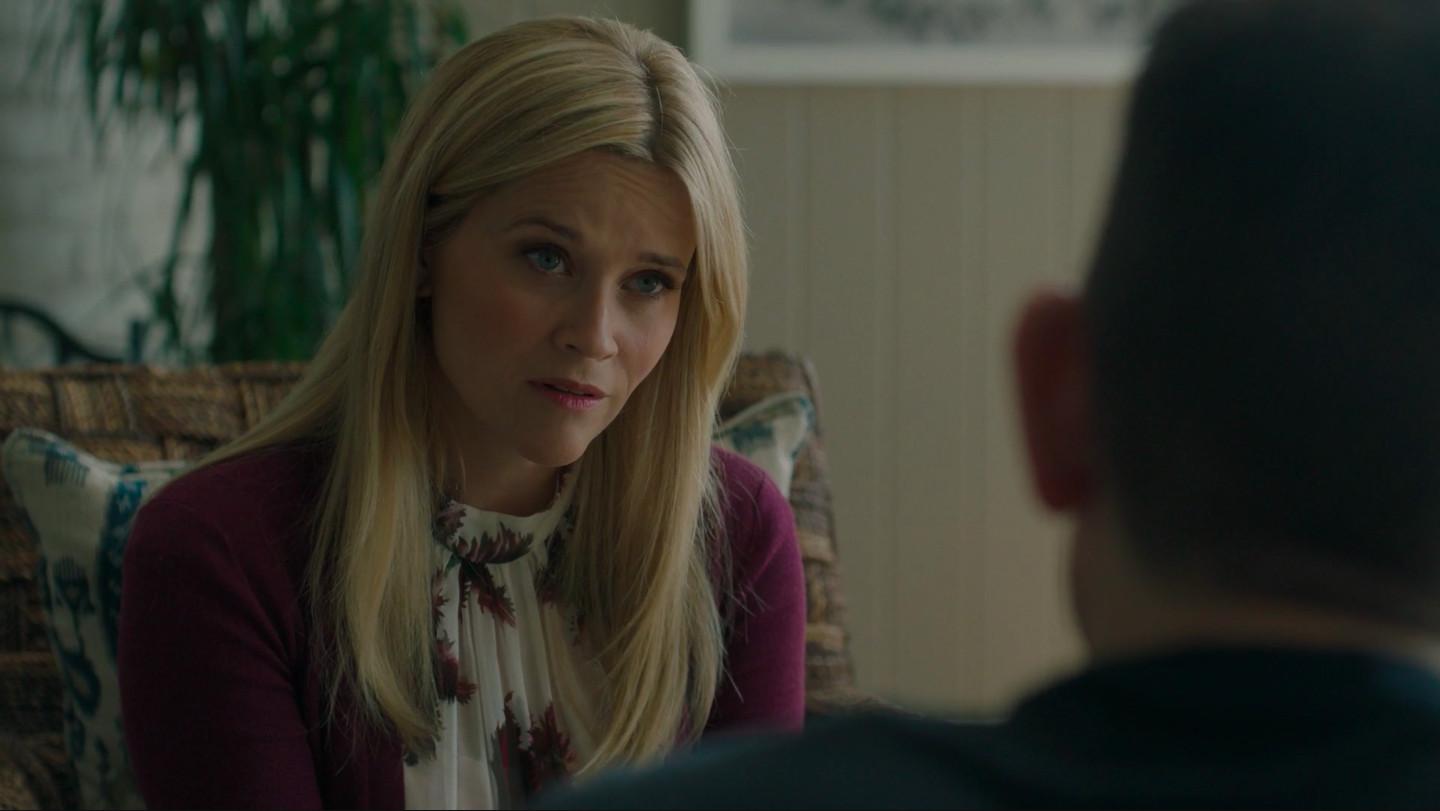
The two other partnered members of the Five reached for happiness by swearing off lies. “I’m done. No more bullshit, no more lies,” declared Renata, capping a triumphant rage-slash-fan-service session that saw her (1) beat the ever loving shit out of Gordon’s train set and (2) scream “maybe you should’ve shown a woman a little respect” (and how) just before tossing her wedding ring in Gordon’s face.
And Bonnie—who finally, decisively elected not to commit matricide, only for her mother to immediately have another stroke and die; never a dull moment, Chapter 872—seized the day by telling a dumbfounded Nathan that she didn’t love him and never, ever had. May the divorce bells ring loud and proud for both.
Oh, right, and there’s that other pesky lie. Detective Quinlan (who didn’t appear in the finale, somehow—please sign my petition to reshoot this entire season with 1,000 percent more Quinlan, thanks) may finally rest easy: The Monterey Five have apparently decided to spill the beans. More on that in a moment.
This is very likely the end of Big Little Lies. In fairness, we were also told that after Season 1, but this time it seems a whole lot more likely. Setting aside the odds of securing this cast again (or a director not named Jean-Marc Vallée who’s willing to work with this creative team after what happened with Andrea Arnold), this is the true end of Liane Moriarty’s source material: The first season was adapted from her 2014 novel, while the latter developments were laid out in a 200-page novella that Moriarty wrote in the aftermath of the HBO series’ success. (So explicit was Moriarty’s intention of getting Meryl Streep to play Perry Wright’s mother that the actress was etched into the character from the start—Mary Louise is Streep’s legal name, and that fact alone apparently wooed her before she even read the script.)
Moriarty could always write more, I suppose, though it’s hard not to think that the plot may finally have run its course (and then some). Season 2 followed Season 1 in making the central plot about the death of Perry Wright: The initial season focused on the murder; this time around, the story, and even this season’s secondary plots (the custody battle, Jane’s shaken trust in Corey, Madeline’s desire to come clean, Bonnie’s guilt and regret—everything but Gordon’s insider trading and philandering, really) mostly revolved around the murder or cover-up in some way. Now that the truth has been made public (we think)—well, there just aren’t that many lies, big or little, to deal with.
So in the wake of Lies’ demise—like Bonnie’s mother, it was briefly and unexpectedly resurrected, though still could not stave off death—let’s break down the final episode. There’s big stuff, yes, and also plenty of little stuff: Ed’s taking up boxing, Celeste’s turning out to be a much better lawyer than her actual lawyer, and Renata’s not wanting milk in her Americano, OK?
The Investigation Into the Death of Perry Wright
“I can just see the damage that it’s done,” Madeline tells Celeste of lying about Perry’s death, “and it’s eroding all of us. Every single one of us.” Celeste agrees, and then lays into Renata and Bonnie for no apparent reason: “Madeline, you and I have a friendship. And Jane,” she adds. “The Monterey Five, whatever we call ourselves—the lie is the friendship.” (This is the kind of casual viciousness we all signed up for—bring back the carpool drama!)
Investigation-wise, there wasn’t a ton of new ground covered in the finale. Celeste discovered, to her horror, that Max and Josh had witnessed—and, moreover, recorded—an instance of Perry violently beating her, which she played during her guardianship hearing as evidence of the results of Mary Louise’s own flawed parenting. But insofar as this was proof that Perry was indeed horribly, terrifyingly violent to her, it was proof needed, perhaps, only by Mary Louise, who seemed to be the only person who doubted Celeste’s account. And anyway, the fact of Perry’s violence seemed to be something that might be taken—wrongly—as a motive for Celeste’s involvement in his death.
Instead, after Celeste is granted full custody of the twins, Bonnie summons the gang in the show’s closing moments, and together the Monterey Five walk into the police department—presumably, given Bonnie’s immediately preceding declaration that she was done telling lies, to give a full account of what happened that night.
Far be it from me to say what legal fate now awaits the Five—my lawyering skills are roughly on par with those of the family attorney hired by Celeste, in that I too would like to make extremely obvious statements and allow someone more legally skillful than myself to make the tough calls—but there’s always been a strangeness to the women’s insistence on the cover-up. This wasn’t murder so much as manslaughter in front of four horrified witnesses; that Perry tripped was a fabrication, but only barely. Horseshoes and hand grenades, perhaps, but the jailward ramifications here don’t seem quite that daunting. (I am available to speak at your next legal conference.)
One last mystery, alas, will remain unsolved: We might never know why Detective Quinlan was so determined to keep chasing a seemingly closed case. If only she’d been around in this episode to explain.
Feud of the Week
Let’s call it Renata versus trains (OK, versus Gordon, but functionally more so versus the trains).
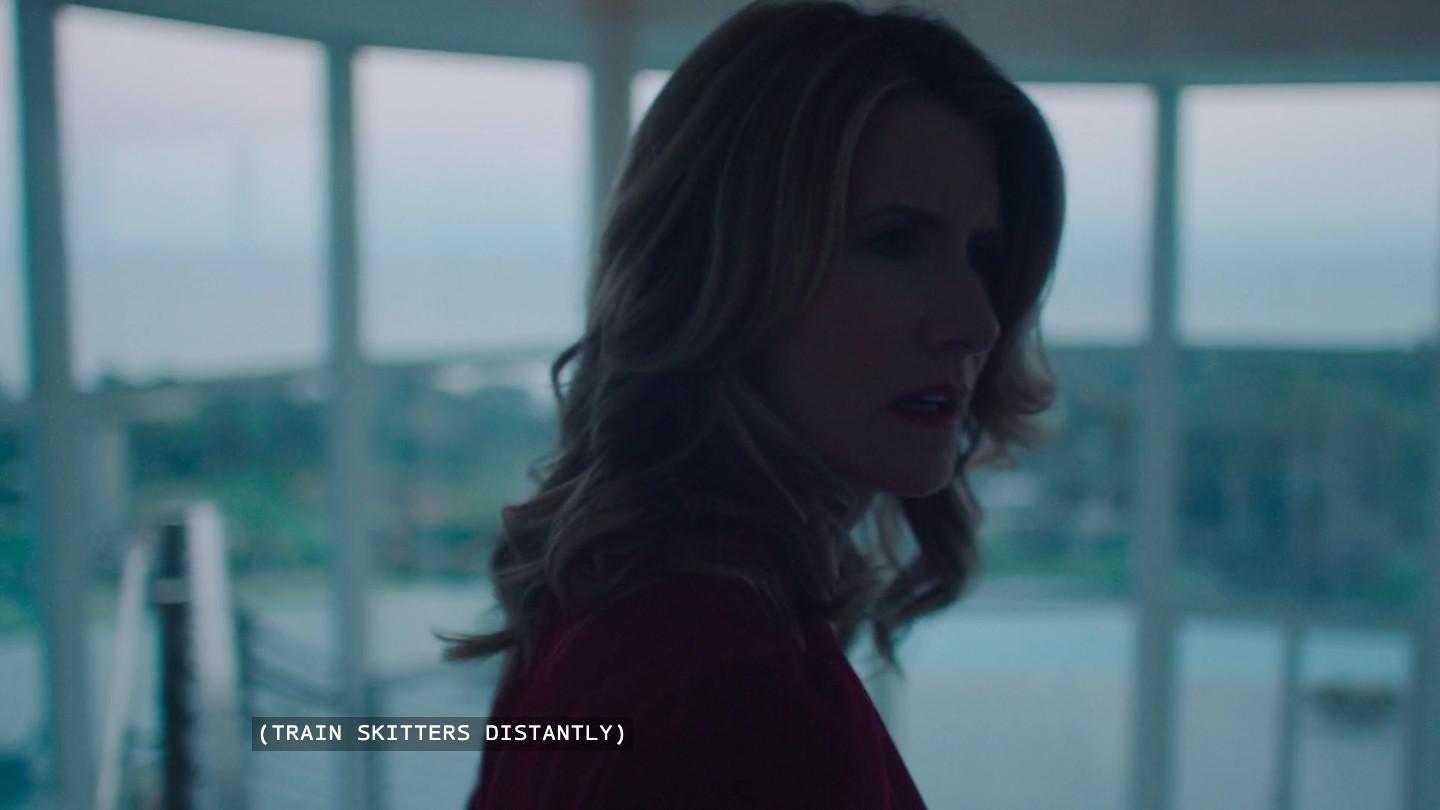
“What the fuck is this?” Renata asks her good-for-nothing, insider-trading, cheating, pinball-loving husband, upon hearing one of his toy trains skitter distantly, in the exceptional words of HBO’s closed captioning. “Why is this still here?”
The answer—that Gordon (or the Klein estate’s bankruptcy trustee, anyway) found a train collector who was happy to leave Gordon in charge of supervising his fleet—did not find a receptive audience, as Renata points out that his actions have cost them their home and just about every non-train belonging. Except, of course, Renata’s wedding ring—but let’s just say that she’s now happy to let the trustee do whatever he pleases with it.
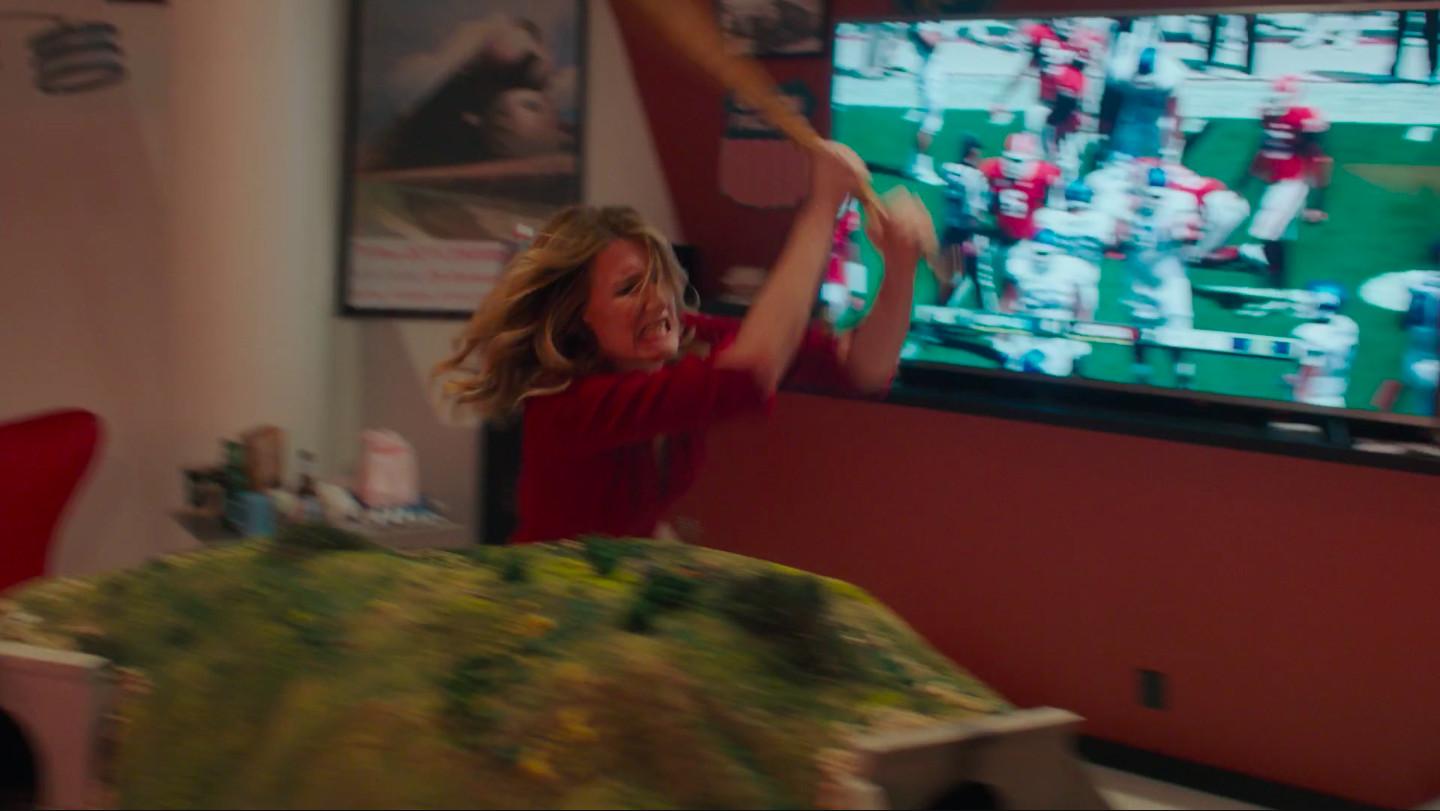
This Week in Meryl Streep
The show telegraphed from way back in the third episode that something was amiss with the fate of Perry’s younger brother, Raymond, whom the show repeatedly reminded us died in childhood. The only real question was whether it was Perry or Mary Louise who caused his death: If it was Perry, that would mean that Mary Louise always knew the truth about what her older son was capable of; if it was Mary Louise, then the show might lead us to conclude that Perry became the monster that he was because of the way he was raised—echoing Celeste’s fears about what Max and Josh, who show outbursts of anger and physical roughness, might have retained from their own father.
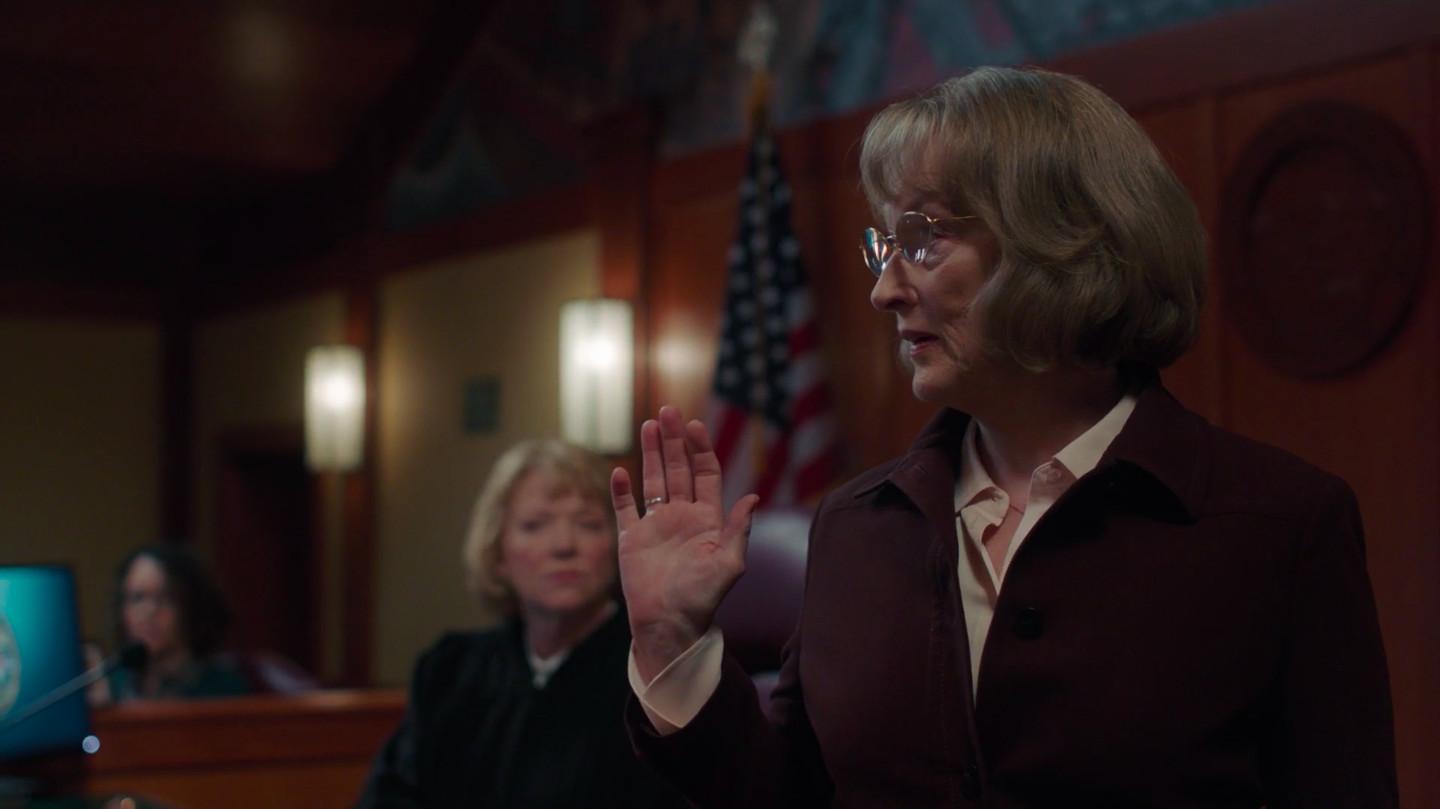
The too-brief reveal—that Raymond died in a car accident after Mary Louise lost her temper (and apparently control of the car) at her young sons in the backseat—was used as evidence of Mary Louise’s unfitness to parent Max and Josh. Here, we learned for the first time that she blamed Perry—then just 5 years old—for Raymond’s death, that she told him “look what you made me do.”
Unless you count the shriek heard round the world or slamming the door in Jane’s face in last week’s episode, we hadn’t seen Mary Louise be particularly volatile. On the stand, Celeste finally pierced her mother-in-law’s armor—establishing her as someone who might not have been physically violent, but who, in Celeste’s words, “emotionally battered” her son. Celeste argues that this abuse laid the groundwork for Perry’s eventual treatment of her, a position the judge apparently finds persuasive enough to deny Mary Louise’s petition for custody.
Meanwhile, Mary Louise continues to deny that Perry was violent: She accuses Celeste once again of trying to “assassinate his memory” by means of “these disgusting fabrications.” “He’s the victim here—not you,” she says. Even after Celeste plays the court the video of Perry beating her, Mary Louise continues to deny the truth: She comes to Celeste’s home and accuses her once again of lying (this time, about whether she ever blamed Perry for Raymond’s death), hissing, “It’s not fair. It’s not fair.”
“This was your son,” Celeste told her in court. And he was.
The Five Meanest Things People Said to Each Other in Episode 7
5. “Do I need to come back there and make it myself?” —Renata, who does not want milk in her Americano, thanks very much
4. “So, basically, you’re saying you get to keep your toys?” —Renata on Gordon’s trains
3. “I encouraged a housekeeper. Or a nanny. She thinks nannies are too much trouble. More trouble than they’re worth, sometimes.” —Mary Louise, who seems to know quite a bit about Renata’s bankruptcy hearing
2. “Well, now she’s gone, I need something to play with, don’t I?” —Gordon on his toy trains and the departure of his, uh, mistress
1. “I’m not in love with you. I know this isn’t the best time to tell you, but I don’t think I’ve ever been.” —Bonnie not merely divorcing Nathan, but nuking their last decade-ish of happy memories. (Do people actually say “I never loved you” in real life? If they do, has anyone ever survived it? My goodness gracious.)
Most Profound Child of the Week
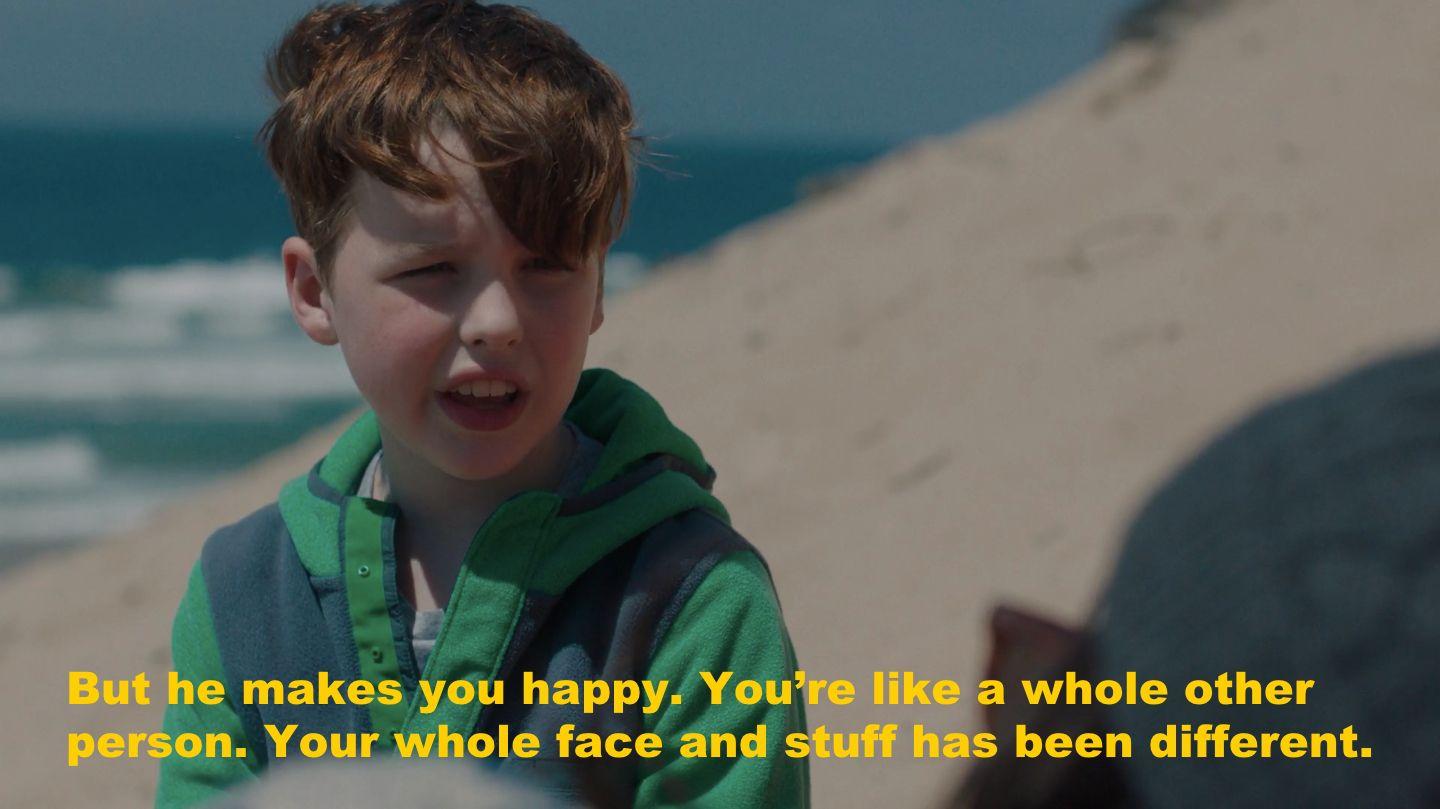
Disclosure: HBO is an initial investor in The Ringer.

